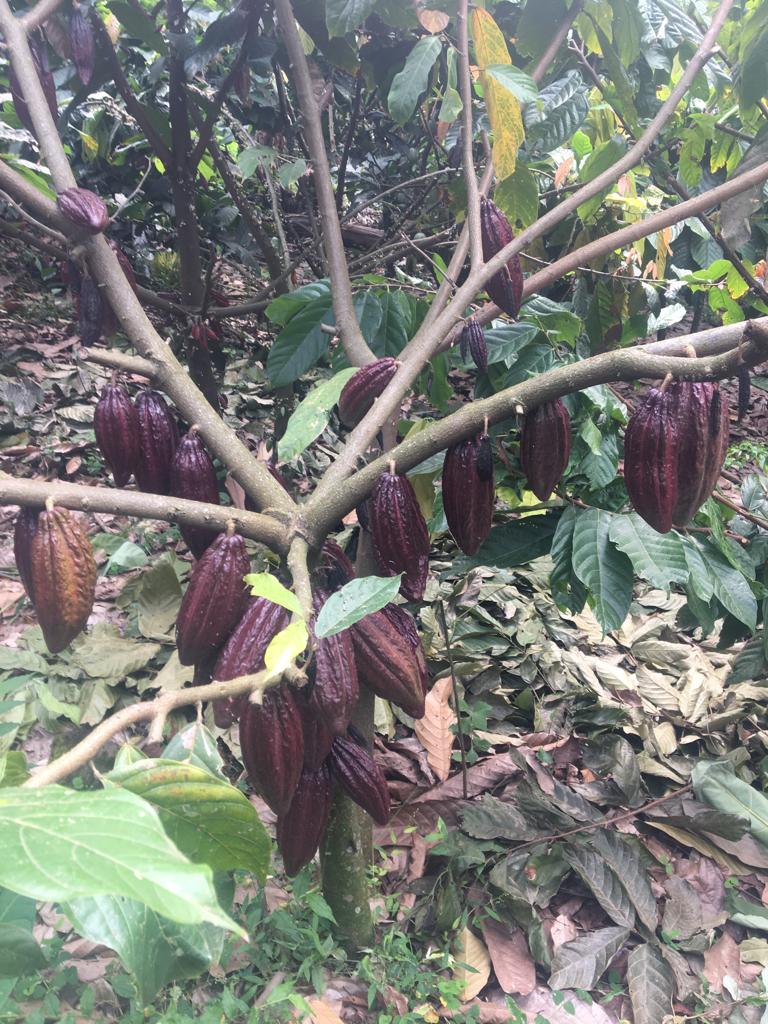Cocoa growing with Afriswe

Nestled within the heart of East Africa, Uganda has been making significant strides in the cultivation of cocoa, positioning itself as a key player in the global cocoa market. Over the years, the country has emerged as a vital contributor to the cocoa industry, with its unique geographical features and commitment to sustainable farming practices.

Geographical Advantage:
Uganda’s equatorial climate, abundant rainfall, and diverse topography create an ideal environment for cocoa cultivation. The country is primarily located along the equator, ensuring consistent temperatures and rainfall throughout the year. Regions such as the western districts of Bundibugyo, Kabarole, and Hoima have gained recognition for their fertile soils and favorable climate, making them hotspots for cocoa production.
Farmers and Cooperatives:
Cocoa farming in Uganda is often carried out by smallholder farmers, many of whom belong to cooperatives. These cooperatives play a crucial role in supporting farmers by providing access to resources, knowledge, and a unified platform for negotiating fair prices. The collaboration within these cooperatives helps ensure sustainable practices and ethical standards in the cocoa industry.
Quality and Varieties:
Uganda is renowned for producing high-quality cocoa beans with a unique flavor profile. The country primarily cultivates two main varieties of cocoa: Criollo and Trinitario. The Criollo variety is known for its fine flavor and aromatic qualities, while the Trinitario variety is a hybrid that combines the hardiness of the Forastero variety with the flavor characteristics of Criollo. The careful cultivation and processing of these varieties contribute to Uganda’s reputation for producing cocoa beans with distinct flavor notes, ranging from fruity and floral to nutty and spicy.

Sustainable Practices:
In recent years, there has been a growing emphasis on sustainability within Uganda’s cocoa industry. Various initiatives and partnerships have been established to promote environmentally friendly farming practices, support fair labor conditions, and ensure the well-being of local communities. The Rainforest Alliance and Fairtrade certifications are becoming increasingly common among Ugandan cocoa producers, reflecting a commitment to social and environmental responsibility.
Challenges and Opportunities:
Despite the success of Uganda’s cocoa industry, there are challenges that farmers face, including pests, diseases, and fluctuations in global cocoa prices. However, these challenges also present opportunities for innovation and collaboration. Government agencies, non-governmental organizations, and international bodies are working together to provide support, training, and resources to help farmers overcome these hurdles and build a resilient cocoa sector.
Conclusion:
Uganda’s cocoa industry is a shining example of agricultural success in Africa. The country’s commitment to sustainable practices, collaboration among farmers, and the cultivation of high-quality cocoa varieties have contributed to its growing prominence in the global cocoa market. As the industry continues to evolve, Uganda stands poised to play an even more significant role in shaping the future of cocoa production and contributing to the economic development of the region.
